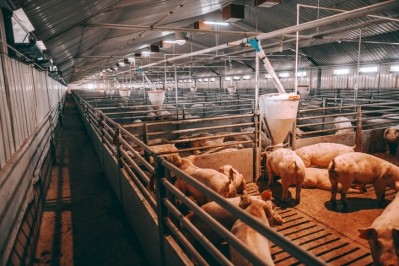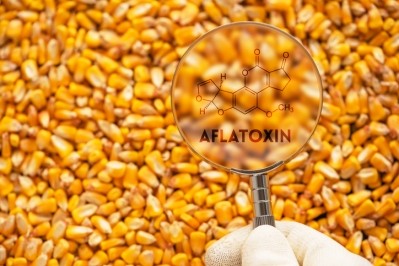Regulatory round-up: ASFv transmission risk, ethoxyquin review, mycotoxin control

A spokesperson for EFSA told this publication there were concerns raised about the quantity and the quality of the data collated in relation to that assessment. She said that risk evaluation is on the agenda of the EU Standing Committee on Animal Health and Welfare, being held in Brussels today [September 25] and tomorrow.
"The postponement of that opinion is not surprising. The timeline for the mandate was extremely short," commented Arnaud Bouxin, deputy secretary general, FEFAC.
Ethoxyquin
EFSA also said that, in terms of its reappraisal of ethoxyquin, its work is on-going. “We expect to finalize it in 2020,” added the spokesperson.
The original EFSA opinion on ethoxyquin in late 2015 concluded there was a lack of data to fully assess the additive’s safety, due to both its metabolites and the presence of an impurity, p-phenetidine, a possible mutagen. The EU risk assessor determined that, due to the manufacturing process, p-phenetidine remains in the feed additive.
However, the EU Commission gave the possibility to the FEFANA antioxidants authorization consortium - the ANTOXIAC group – to resubmit complementary data in order, thus, for EFSA to re-evaluate the safety of the antioxidant.
Mycotoxin controls
Meanwhile, a summary of what was discussed at the Animal Nutrition Section of the Standing Committee on Plants, Animals, Food and Feed (SCoPAFF) held on September 9-11, 2019 has just been published on the website of the UK’s Food Standards Agency (FSA).
Bouxin weighed in on the critical areas of debate within that forum for us. He said there was interesting feedback on mycotoxin controls at the meeting, with new directions proposed in this respect.
Deoxynivalenol (DON) is one of the most difficult mycotoxins to control, and not all mitigation technologies are readily available to farmed animal producers in Europe, he stressed.
The fact that guidance levels to lower limits of DON and its modified forms in complete feed appear to be the preferred option is a positive development, he added.
"The concept of guidance values versus maximum limits is an important topic. Maximum limits must be complied with [and, if they are exceeded, sanctions will be applied]. Guidance values are different, in terms of corrective action, they give farmers more margin of manoeuvre."
The Commission also flagged that some NOAELs were lower than current limits for specific animal species. Similarly, on T2/HT-2 in feed, it said it is anticipated to move to guidance levels based on NOAELs/LOAELs.
Glossary
The no observed adverse effect level (NOAEL) is the greatest concentration or amount of a substance at which no detectable adverse effects occur in an exposed population.
The lowest observed adverse effect level (LOAEL) is the lowest level of a substance that has been observed to cause harm in an exposed population.
He said that the EU Commission provided a follow-up explanation about the creation of an expert group on animal nutrition in the context of the Committee’s recent adoption of delegated acts to comply with conditions set out in the Lisbon Treaty.
"This expert group will be open to stakeholders - this is a new forum for consultation, we get a seat at the table with national authorities."















